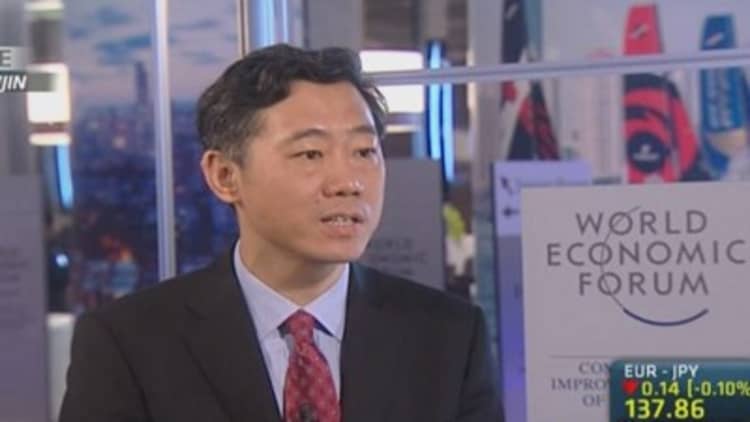Chinese people are the most upbeat in the world about their domestic economy, a poll by Washington D.C.-based think tank Pew Research Center showed this week.
Pew interviewed 48,643 people across 44 countries from March to June to evaluate global consumer sentiment six years after the onset of the global financial crisis.
The predominant mood was glum; a global median of 60 percent of respondents see their country's economy performing poorly. But sentiment varied widely from country to country.
China registered the most positive views, with 89 percent saying they are satisfied with the way things are going –a surprise to some considering chatter among China watchers has been fairly bleak.
Read MoreChina reforms to start dragging on growth in 2015
"The Pew research seems odd to me especially given that property prices are correcting in China," Francis Cheung, China economist at Asia research house CLSA, told CNBC. He also highlighted the impact of the government's anti-corruption campaign, which has taken its toll on some retail sectors.
However, Cheung pointed out certain drivers that may underlie the positive sentiment: "Job creation is very strong driven by the services sector and wages, especially for factory workers, continue to rise," Cheung added.
Meanwhile, Patrick Chovanec, managing director and chief strategist at Silvercrest Asset Management, told CNBC Chinese people are optimistic because they grew accustomed to robust economic growth in recent decades.
Gross domestic product (GDP) growth in China slowed to 7.4 percent on year in the first quarter, the slowest pace in six quarters, but inched up to 7.5 percent in Q2. Growth has slowed substantially from the double digit gains the economy enjoyed throughout much of the past decade.

"China's economy has been growing at a strong pace for the past 30 years, and people find it difficult to conceive of that changing, even when there is evidence that it is changing," said Chovanec.
"Most people expect the future to look like the past, and have a hard time imagining they might be at an inflection point. So any difficulties are treated as a temporary aberration until things can go back to normal. I think this is incorrect, but it's also human nature," he added.
A flurry of weak data in recent months including falling inflation, lackluster manufacturing data and slumping property prices has exacerbated concerns about China's economy.
Read MoreChina's reforms reducing hard landing risk: Premier Li
Chovanec added that positive sentiment is also driven by faith in the government's ability to control the economy. For instance, many Chinese citizens believe the government would not let the property market crash despite signs of a bubble, he said.
Other economies
Other nations that were particularly optimistic on their economic prospects were Vietnam at 87 percent – which posted a 5.25 percent on year GDP expansion in the second quarter – and Germany at 85 percent, where positive industrial production data and a robust labor market boosted sentiment.
Meanwhile, the impact of the 2011 euro zone crisis is clearly still being felt in some countries. 97 percent of Greeks said conditions were bad, as did 96 percent of Italians and 93 percent of the Spanish.
Read MoreOver to you, ECB's Draghi tells euro zone governments
Ukrainians who have been embroiled in geopolitical crisis this year also had a bleak outlook; 93 percent hold a negative perception.


